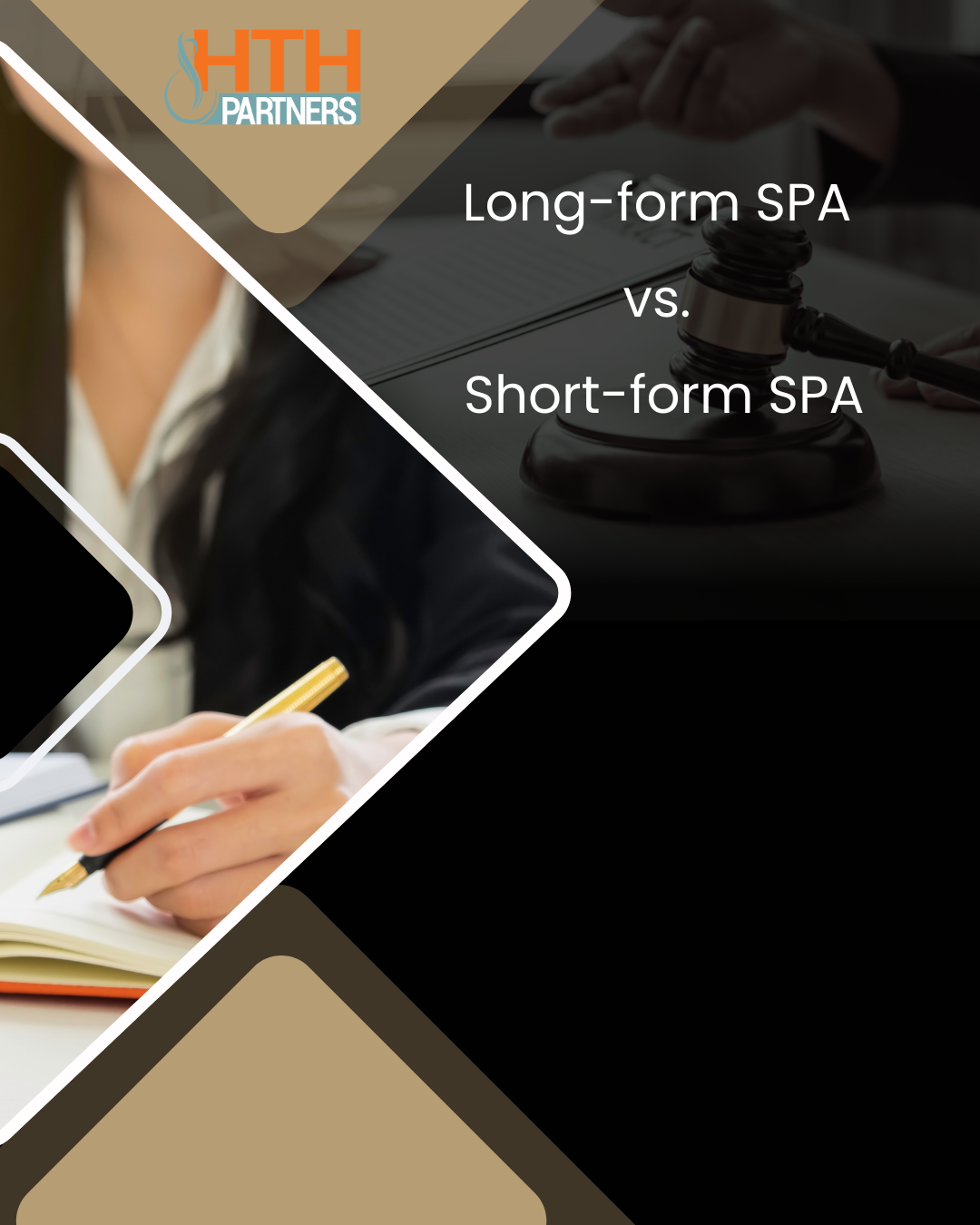From a legal and transactional standpoint, the distinction between a “long-form SPA” (also known as a master SPA) and a “short-form SPA” is well understood and applied by many corporate M&A lawyers. These terms commonly arise in structuring and documenting M&A transactions, with each form serving different purposes depending on the stage of the transaction, the complexity and commercial arrangements involved.
However, from a Vietnamese tax law perspective, there is no such differentiation between a long-form or short-form SPA. The tax authorities do not consider the form or intended function of the SPA. Instead, tax obligations are triggered purely based on the date the SPA is signed, regardless of whether ownership of the capital has actually been transferred or any payment has been made. Under current regulations, the parties are required to declare and pay the applicable taxes within 10 days from the SPA signing date.

Long-form and Short-form Share Purchase Agreements: Legal and Tax Perspectives in Vietnam
If the parties in a M&A transaction execute a long-form SPA and disclose it to the tax authorities, they may be compelled to declare and pay taxes immediately even if the actual transfer of capital or payment has not yet occurred.
Please exercise caution when signing and disclosing a long-form SPA or master SPA, as doing so may trigger tax liabilities in Vietnam. If you would like to discuss this further, please contact us at:
jamesphan@hthpartners.com.vn or legalenquiries@hthpartners.com.vn



